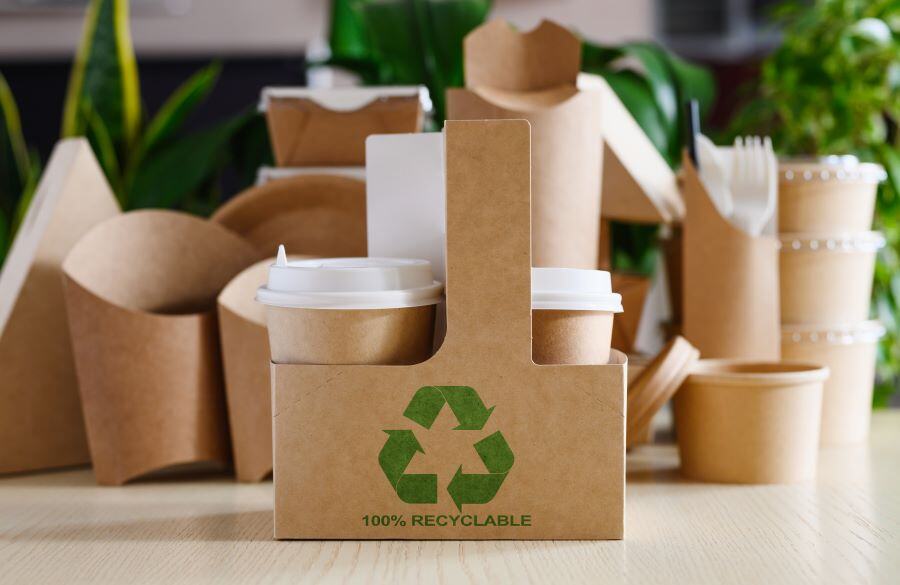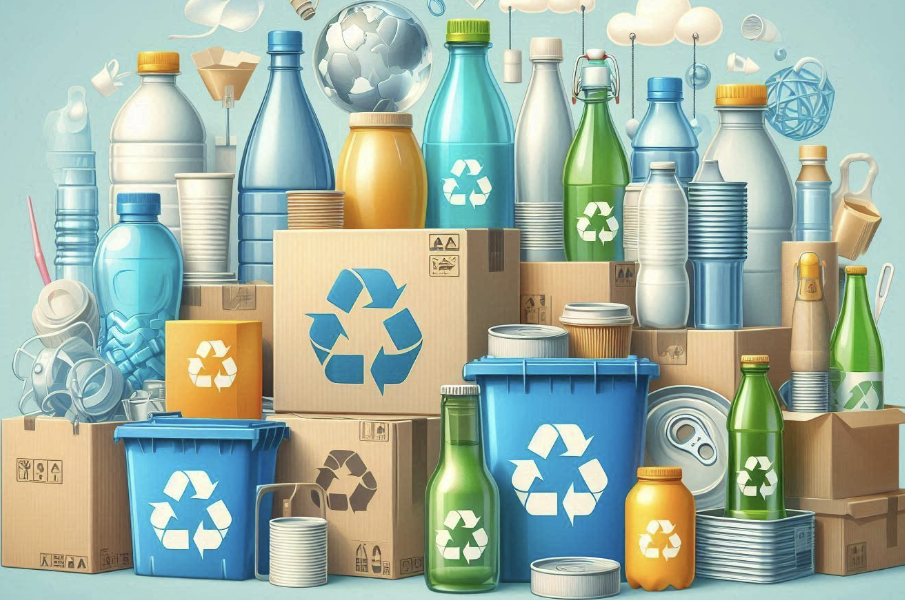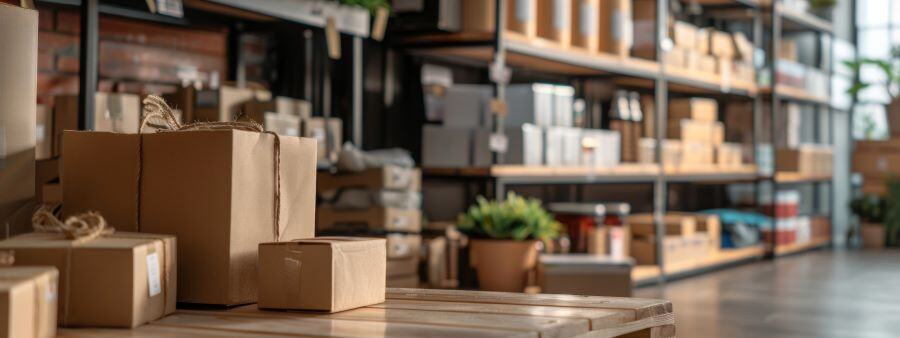The Future of Plastic Recycling: Game-Changing Innovations and Policies
Plastics have become an indispensable part of modern life. From keeping food fresh to ensuring medical supplies remain sterile, their versatility, light weight, durability, and cost-effectiveness make them essential.
Yet the very attributes that make plastics so valuable — strong and long-lasting — are creating an environmental crisis.
Why Does Plastic Recycling Matter?
The staggering statistics of plastic’s lifecycle underscore the urgency to address plastic waste efficiently.
According to a UN report, the world produces 400 million tons of plastics every year, yet only 9% of plastic waste gets recycled, 12% is incinerated, and the remainder finds its way into landfills or oceans, contributing to pollution and greenhouse gas emissions.
In the United States, the plastic recycling rate is even lower at 5%. Making matters worse, half of all manufactured plastics are discarded within a year, according to a study by UC Santa Barbara.
With global plastic production set to triple by 2060, the need for effective recycling practices has never been more pressing.
Fortunately, the market for recycled plastics is experiencing significant growth, driven by robust demand. According to Recovery, the global market for plastic recycling is projected to reach US$129.5 billion by 2031, expanding at a compound annual growth rate of 9.3%.
Main Obstacles to Recycling Plastics
So why aren’t we recycling more? The barriers are both technical and systemic:
- Material complexity: Plastics are made from various polymers, often blended and treated with coatings or additives for performance enhancement. This process creates products that aren’t recycle-ready.
- Contamination: Food residues, dirt, chemicals and other impurities often render plastics unsuitable for recycling.
- Infrastructure gaps: In rural areas, limited resources, low population densities and small tax rolls to establish facilities make recycling economically infeasible. Even in eco-conscious states like California, these challenges persist.
- Equipment limitations: Many disposable products end up in landfills despite being made from recyclable plastics, as facilities lack the equipment to process them. Plastic bags jam recycling machines while black-colored plastics are often undetectable by sorting scanners.
New Technologies Tackling Recycling Challenges
Innovation offers a way forward. Companies and research scientists are pioneering technologies to improve recyclable collection and to treat hard-to-recycle plastics.
Next-Gen Sorting Solutions
Imagine a world where black single-use containers, often rejected by conventional recycling systems, get a second chance. Canon’s TR-S1510 plastic sorting equipment makes this a reality by using advanced spectroscopy to identify black plastic, reducing rejection rates.
Meanwhile, Recycleye is making waves with its Vision AI technology, enabling sorting robots to separate food-grade from non-food-grade plastics with precision. In the Netherlands, scientists have developed a magnetic density separation process to isolate plastics from metal contaminants in solid waste sorting.
Breaking Barriers with Innovative Green Solvents
In the United Kingdom, scientists are experimenting with green solvents to separate multilayered laminates — those tricky combinations of different polymers, aluminum foil, and coatings often found in food packaging. If successful, this breakthrough could revolutionize the recyclability of flexible packaging products.
Chemical Engineering to the Rescue
What if discarded plastics can be reverted to basic chemicals and gases to be used as raw materials again? Chemical maker Eastman, in collaboration with automotive industry group USAMP, successfully proved that it can be done. The company converted unrecyclable automotive plastic waste into syngas, paving the way for the used plastics to be reincarnated as new car parts.
UC Berkeley researchers are taking a similar approach with a novel vaporizing process that turns everyday plastic waste — think shopping bags, microwavable trays and pill bottles — into hydrocarbon building blocks for fresh plastic production. Even post-consumer mixed plastics, long a recycling headache, can be transformed using this method.
Plastic Waste Finds New Purpose
In an agricultural twist, UC Riverside scientists are leveraging pyrolysis to convert plastic waste into degradable, porous charcoal. This innovative material not only diverts plastics from landfills but also enhances soil water retention, offering a sustainable solution for farmland.
Public Policy Driving Accountability and Changes
As concerns about plastic waste grow, governmental bodies are advancing policies to boost recycling.
In Europe, the Council of the European Union (EU) recently approved the Packaging and Packaging Waste Regulation, which includes a provision that all plastic packaging put in the EU market must include post-consumer recycled waste.
In the United States, the Senate's approval of the Recycling and Composting Accountability Act and the Recycling Infrastructure and Accessibility Act highlights a significant federal effort to tackle plastic recycling challenges by enhancing rural recycling access and improving the collection of relevant data.
On the state level, New Jersey is considering legislation that mandates all plastic packaging to be recyclable or compostable by 2034. Similar bills have already been passed in California, Colorado, Oregon, Maine and Minnesota.
Recent policy developments also highlight an increasing reliance on Extended Producer Responsibility (EPR), meaning that product manufacturers are responsible for what happens to their products after use.
Maine became the first state to require producers to reimburse municipalities for recycling costs. The law will be effective in 2027. Oregon is also advancing EPR regulations, mandating packaging producers to join the Circular Action Alliance. The state plans to enhance collection services and upgrade material recovery facilities by the end of 2027.
Moreover, corporations now face legal scrutiny over their recycling practices. In California, the state’s attorney general has filed a lawsuit against ExxonMobil. The suit alleges that the company’s marketing has not been truthful about the technical limitations of its recycling capabilities and has deceived the public by falsely promoting its plastics as recyclable. ExxonMobil has countered these charges with a defamation lawsuit.
A Call to Action
The challenges of plastic recycling are daunting, but progress is under way. As innovation accelerates and public policies tighten, a more sustainable future for plastics is attainable. By embracing new technologies and sustainability measures, companies can turn the tide on plastic waste and contribute toward a circular economy.
Getting Ahead of the Competitive Curve
Whether you're a manufacturer, retailer, recycler, or policy advisor, Industry Intelligence is your trusted partner for staying ahead. Our expertly curated, AI-enhanced market intelligence delivers insights on critical topics such as plastic recycling, waste management, packaging innovation, bio-based materials and sustainability.
Our customizable MS Teams integration helps align every team in your company with relevant market news. Additionally, our Legislation Monitor ensures that you won’t be blindsided by proposed or new laws at the federal or state level.
For over 20 years, industry leaders have relied on our solutions to navigate and thrive in an ever-changing market. Discover how we can help you compete smarter — explore our solutions or contact us today for a consultative demo.
New!! Join our U.S. Public Policy LinkedIn group to network with government affairs experts and participate in thought-provoking discussions on legislative and regulatory trends: https://www.linkedin.com/groups/14613096/


